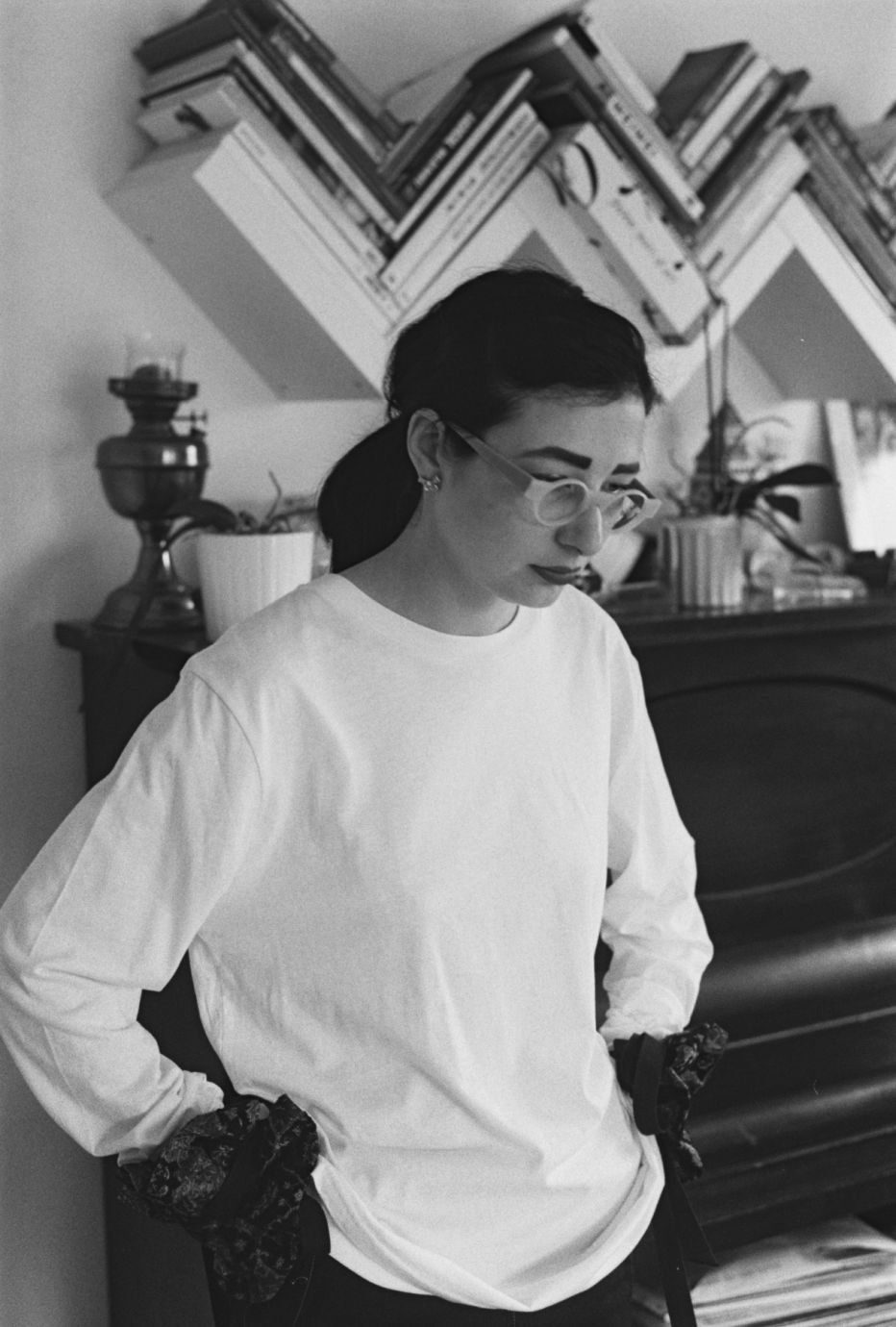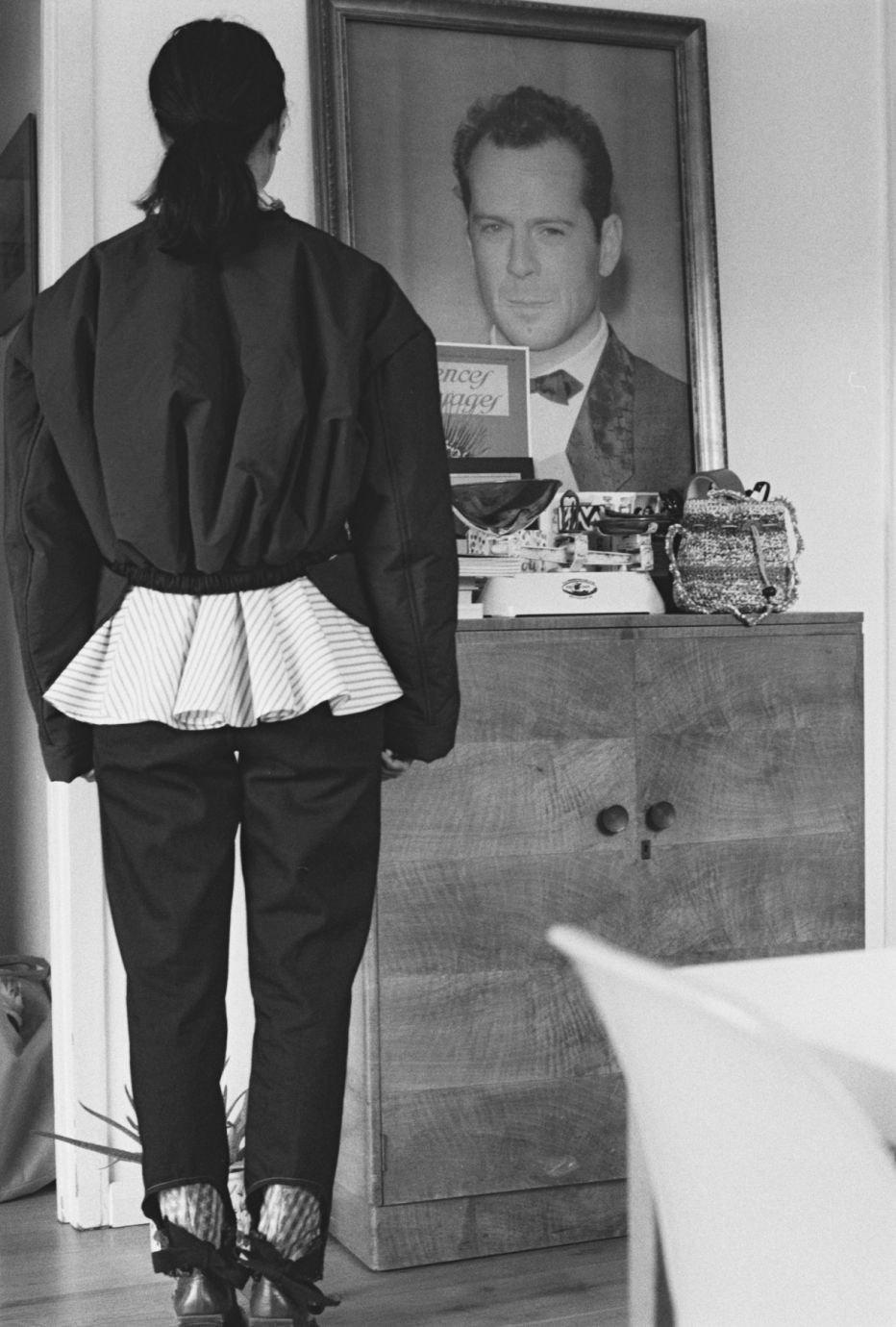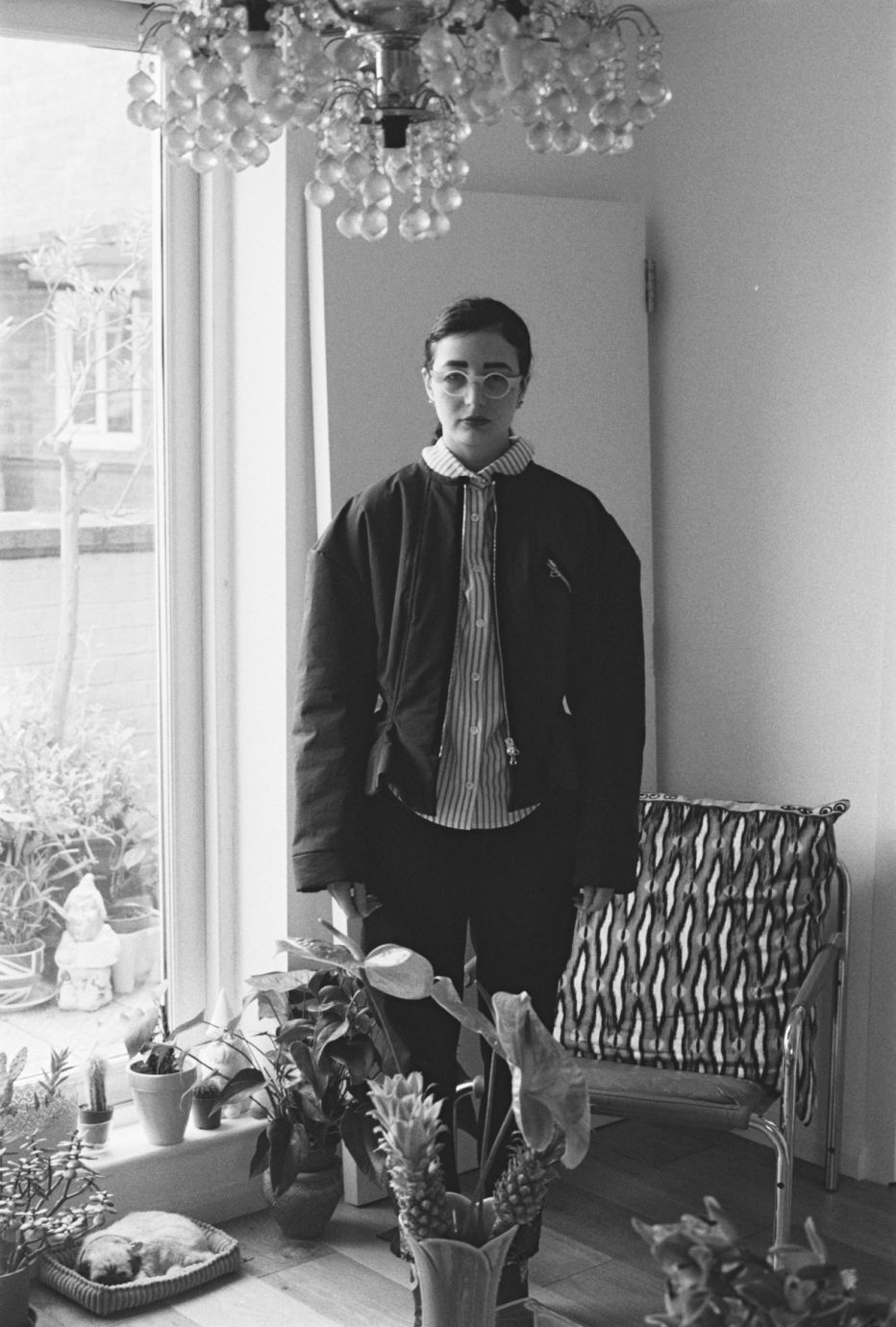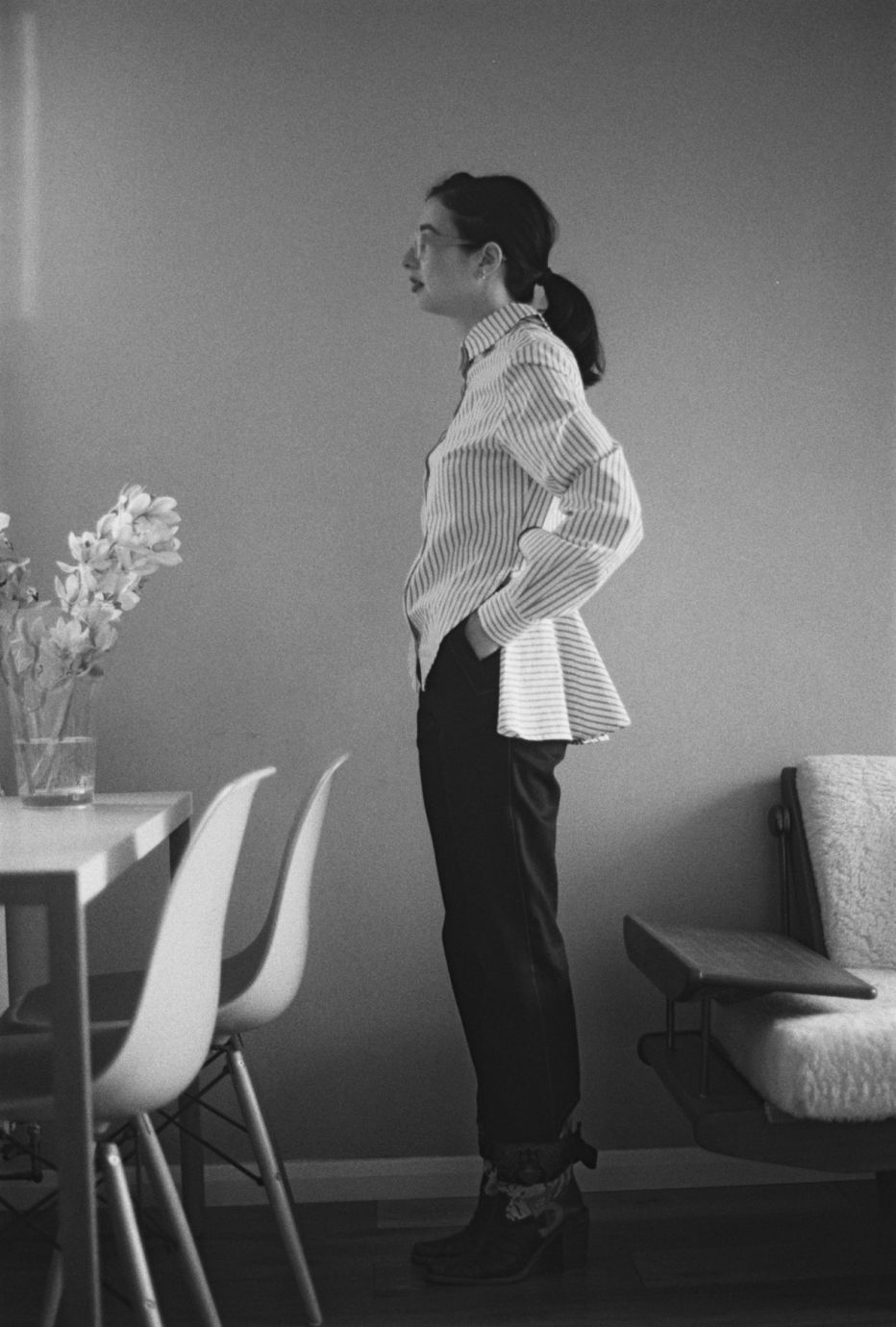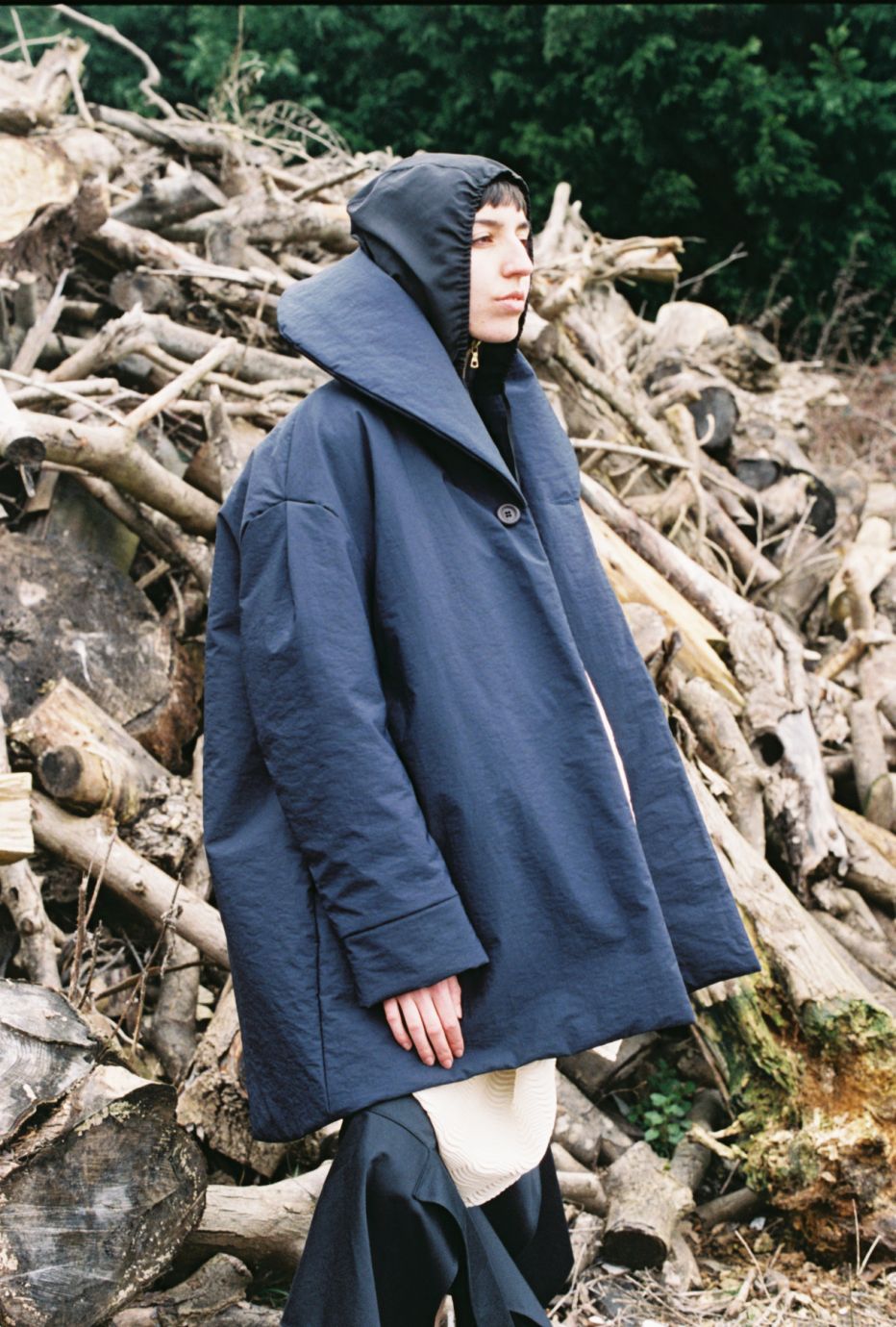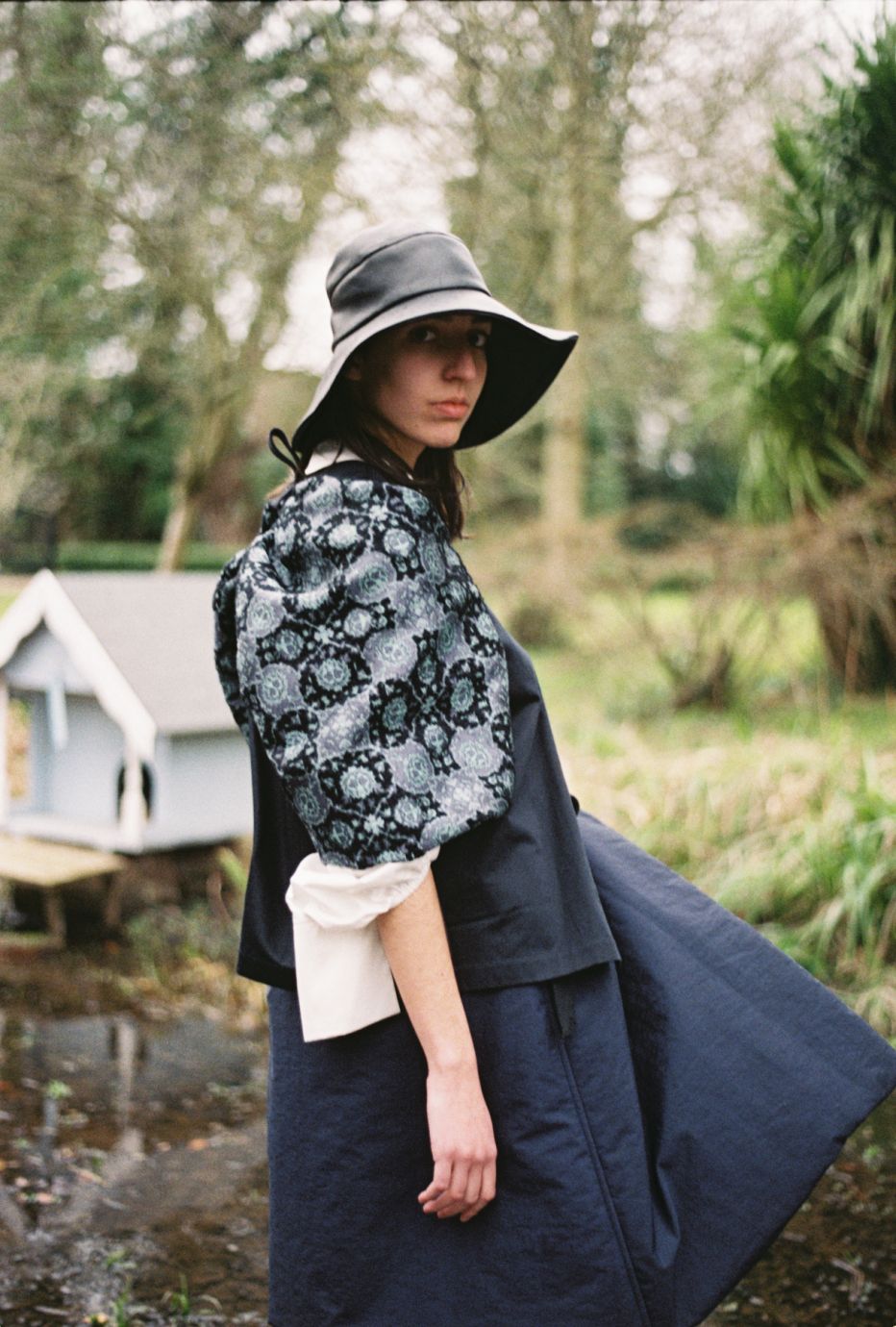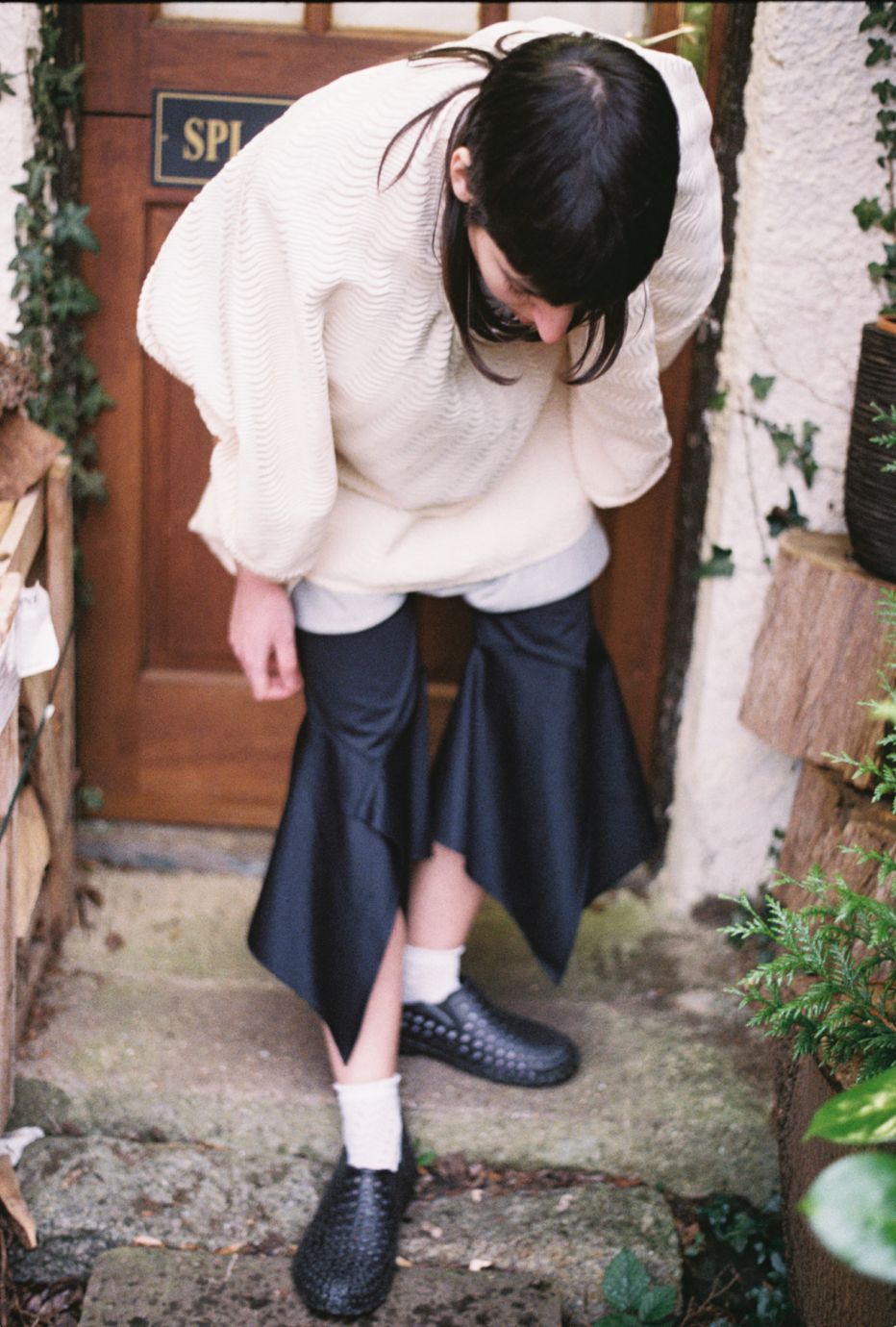How did your interest for fashion flourish?
When I was young, I thought that fashion was all about vanity, even though I was still fascinated by clothes. I guess fashion has always been a part of me but I never thought I wanted to be a designer. I really enjoy making things with my hands, I am really into tangible things. I was trained to be a potter after school and re-working garments was something I did a lot when I was younger. For me fashion is just another way to express my creativity.
When I was in Indonesia I didn’t really like what I was doing there, so I came to London and did my foundation at Chelsea College of Arts. After some time debating on what path to take for my BA, I figured that the Fashion program at Central Saint Martins would allow me to make and manipulate tangible things, which is what I am very passionate about.
What is the most important outcome that you got from CSM?
The people. I learned so much from my peers. Everyone was so nice, and we all helped each other. The atmosphere and the vibe were amazing. It showed me that teamwork is crucial to help materialise your ideas. Whatever you do, it’s better to do it together than do it on your own. Based on my experience, people at CSM were incredibly talented yet humble and kind. I found my peers were brilliant minds, everybody was super happy to be themselves, nobody tried to be someone else, and that is perfect when you are trying to explore your creativity.
What did you do right after graduation? Did you always have a plan for after school?
Since I was very young, I knew that I didn’t want to work for anyone. During my placement year after school, I did an internship at Hussein Chalayan. In the meantime, I was doing freelance work to figure out how I would want to do my own thing and soon after that I started my own label.
Before I got to that point, I have to admit that I went through an internal discussion with myself, of asking what was the benefit of spending my life making clothes. I thought it was too self-indulgent. I had this contradiction inside of me because I love clothes, but I needed to work out how to feel useful and meaningful.
And did you work that out? What do you think makes fashion relevant?
The creative industry, in general, is very egocentric, because it revolves around self-expression. So, in some way, I feel that it’s only about “me, me, and me.” But, on the other hand, if we don’t have creativity, we won’t have culture. Clothes help us express our identity and identity is a subject I’m really excited about. For me, to be able to assist in the actualisation of someone’s individuality would be such a great reward. And there is also the business side of fashion that is a massive industry. It creates job opportunities for people and it preserves craftsmanship. The relevance of that speaks for itself.
Do you think fashion should be considered as an art form?
I think that fashion has different clusters, so I guess fashion sometimes can be an art form. For example, Rei Kawakubo is a brilliant designer and definitely an artist at the same time. I sincerely think that a fashion designer is someone who creates something that is functional for people, something that people can actually wear. In my opinion, there is a way to be both at the same time. If you are an artist, your work is about expressing your creativity, but a designer implies the business side as well. It’s the dialogue of fashion as art, and fashion as a product.

